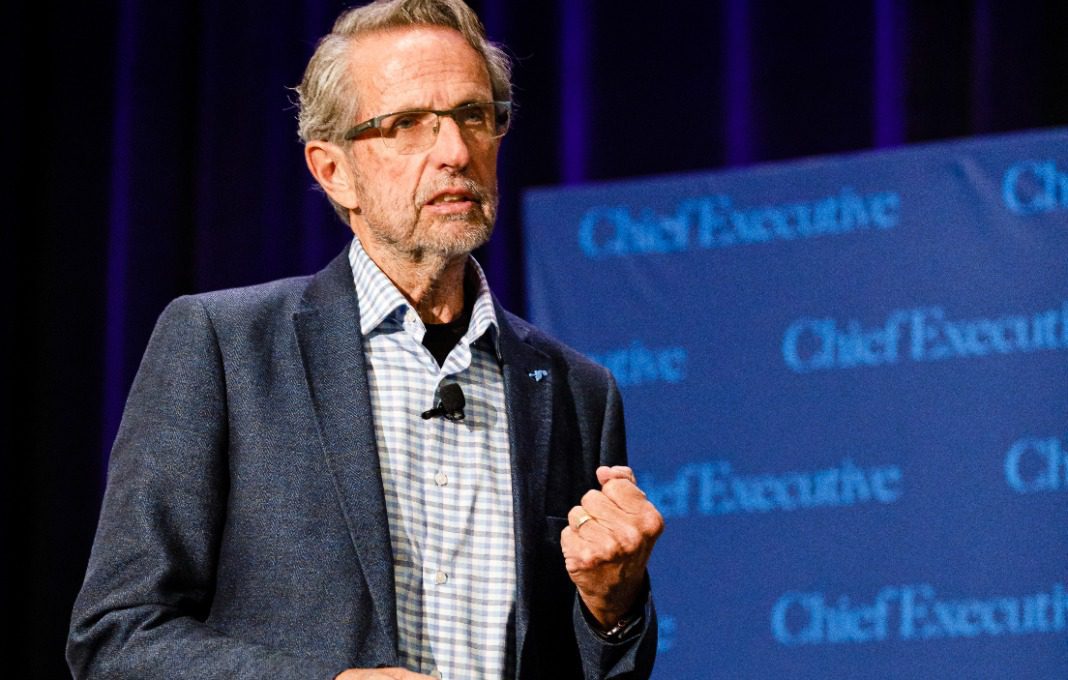 Bob Chapman launched an overhaul of the culture at Barry-Wehmiller, a $3-billion diversified-manufacturing enterprise based in St. Louis, with 12,000 workers in dozens of plants in several countries. Then he began spreading his gospel of how business leaders can humanly care for employees, in a book and appearances around the world.
Bob Chapman launched an overhaul of the culture at Barry-Wehmiller, a $3-billion diversified-manufacturing enterprise based in St. Louis, with 12,000 workers in dozens of plants in several countries. Then he began spreading his gospel of how business leaders can humanly care for employees, in a book and appearances around the world.
But now the veteran CEO and corporate change agent may be facing his biggest challenge yet: how to reconstruct a culture of professional work at his company that has been completely blown apart by the restructuring of performance wrought by Covid-19.
“This is the huge question facing us in the next six months,” Chapman told Chief Executive. “Our board is very much divided on this issue, and our executive team is very much divided. I haven’t heard anyone give me particularly compelling logic about what we should do.
“And as I’ve been talking with many other CEOs about this, it’s a huge question for everyone. One said, ‘If you talk with anyone who thinks they know what this means, they’re wrong.’ No one knows. And it may not be resolved for a while.”
Sales, productivity and optimism have never been higher at Barry-Wehmiller, which supplies manufacturing technology and solutions serving a diverse platform of industries including packaging, paper converting, sheeting, corrugating, engineering and IT consulting. Its plants have continued humming amid the coronavirus, while its white-collar staffs have relatively seamlessly upped their games from the comfort of their own homes for most of the last year.
“There hasn’t been a trade show in a year and a half, but orders have never been stronger,” Chapman said. “And now I can have a global listening session on Zoom which is better than any in person, because a guy from Minneapolis, and someone from Hamburg and Stuttgart can all be on the same video. We’re saving $10 million a year in travel expenses.
“When I walk around the office, only 20 percent of the people are here; everyone else is working at home. Yet we’ve never worked at a higher level.”
But Chapman said there will be a time of reckoning in the post-Covid future because of the proven value of people working together physically in making a company hum in the here and now, and in constructing a familial culture that helps ensure growth and future success.
“What is the human side of work? How do you maintain a culture? That’s what we want. The Number One source of happiness in this world is having a good job, working with good people, doing good work that you enjoy. Is that going to mean sitting at your computer in the bedroom with your cat jumping on you?”
He believes the extension of the remote-working paradigm over nearly a year now “can’t be good, culturally. Companies can perform, but how do you separate out the human interaction for personal growth and feeling part of something bigger than yourself? What’s the loyalty of someone who sits behind a computer at home all day? I believe being on a team means interacting with the team, and I don’t mean on Skype. You compromise the synergy that occurs when people come together and do something meaningful.”
Chapman also is concerned that the dispersion of white-collar work may exacerbate “the cultural divide” in manufacturing operations because “you can’t run a machine tool from home.” Plus, for instance, “If you work in the machine shop of a plant and you see white-collar people sort of come and go, how do you feel about that?”
Another wrinkle is that the physical dispersion of white-collar work has at least temporarily relieved some of the oppression that many Americans feel in their physical workplaces. “Prior to Covid, 88 percent of all people worked for a company they felt didn’t care about them,” Chapman said, citing research that he uses in his presentations on what he calls Truly Human Leadership. “Most of them felt that they had a boss who degraded them. They didn’t dislike their colleagues but, rather, the environment they worked in. So, giving people a year away from that kind of oversight – what does that mean about the future of professional work?”
Chapman understands that any wholesale return to the office for Barry-Wehmiller and all employers will still require “dramatic variations in treatment, out of respect” for individuals’ concerns about virus transmission even in the wake of a current dramatic decrease in the rate of new Covid-19 cases.
“Some individuals are scared to death to this day for themselves, or for what they might carry back to their family. There’s a wide range of comfort to fear that you’ve got to respect. You can’t say that people shouldn’t be afraid. Anybody assuming anything before, say, June, would be forcing people back against their will. And maybe we’ll need to address things with variable work schedules.
“Once we get back to the office, we’re going to have lots of listening sessions. Is there a new way to work?”
Read Again https://chiefexecutive.net/barry-wehmiller-chief-wants-to-manufacture-a-way-back-to-work/Bagikan Berita Ini















0 Response to "Barry-Wehmiller Chief Wants To Manufacture a Way Back To Work - Chief Executive Group"
Post a Comment